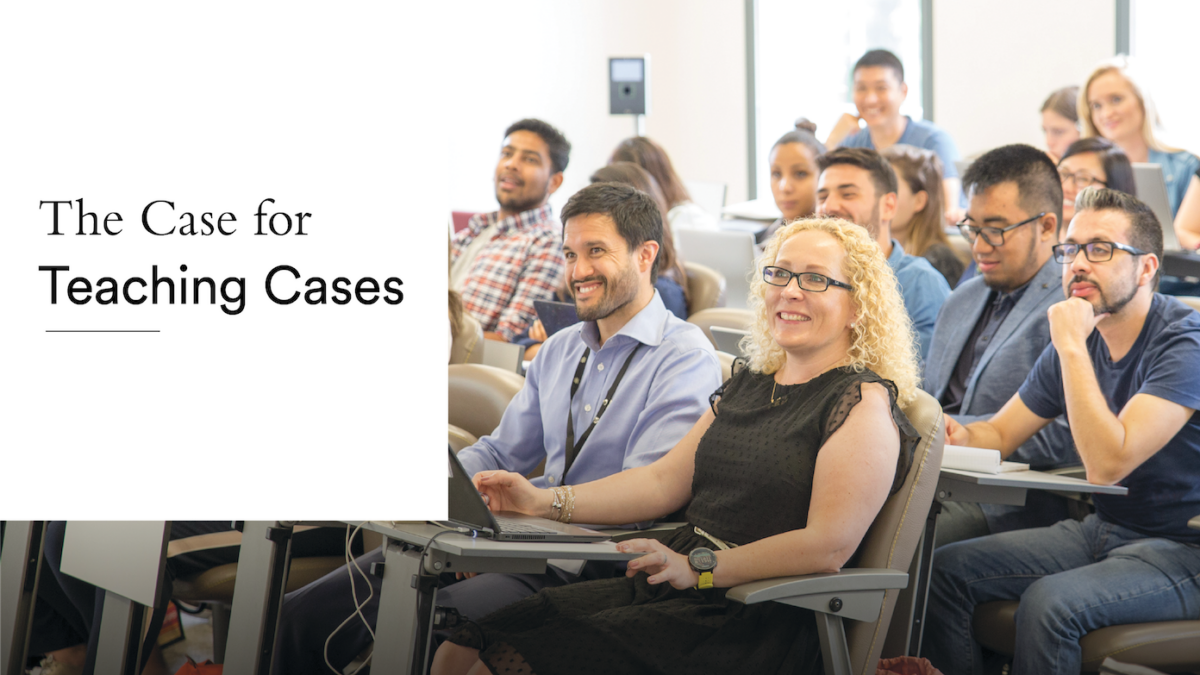Hult students are learning how to use generative AI ethically and responsibly thanks to the use of up-to-the-minute teaching cases in the classroom.
Teaching cases are a key component in Hult’s wider mission to be the business school for those made to do. Our cases tackle the hot topics, emerging trends, and contentious issues that are challenging the new generation of young managers entering the business world today. They are global in scope, including emerging and developing markets and cover the complex, multi-faceted dilemmas affecting the modern world of work.
Helping prepare students for a working world that will increasingly be dominated by AI is a particular focus, and it is in this area that Hult is setting itself apart from other universities. Within higher education, much of the rhetoric to date has been around banning the use of generative AI, with concerns expressed about cheating and plagiarism. Hult’s stance, however, is that education needs to embrace generative AI and focus on teaching students how to navigate it confidently, sensibly, and ethically.
Helping prepare students for a working world that will increasingly be dominated by AI is a particular focus, and it is in this area that Hult is setting itself apart from other universities.
To this end, a number of innovative teaching cases have recently been published or are under development:
- As part of their undergraduate program at Hult International Business School, a team of students is developing an AI-based Virtual Reality Exposure Therapy (VRET) solution to help post-traumatic stress disorder patients.
The solution (called’ Safe Space’) brings patients, therapists, and AI together in an innovative product that is centered around the use of Head Mounted Displays (HMDs). AI is incorporated to help sort and analyze data, including patients’ goals and preferences, and to perform predictive modeling that could lead to more accurate assessment and more personalized and effective treatment plans. The product is designed to be used under the guidance of a trained professional and is currently in the early testing stage.
- Gambling habits are the focus of another teaching case soon to be published. The teaching case guides students through how with the help of AI, they can analyse large sets of data to extract information about trends in online gambling. The aim is to discern between responsible gambling and irresponsible gambling. The case also discusses the steps that government and regulators can take to help alleviate the rampant levels of irresponsible gambling seen among young people today.
- A simulation called Novela is the subject of a third teaching case that looks at information engineering. With the help of AI, students are analyzing the keywords consumers might use to search for a product online – and at how businesses might use that information to decide which type of ‘pay per click’ advertising is most likely to bring traffic into their online store. Using the simulation, students are able to make decisions based on a variety of factors and get feedback on the expenditure, revenue, or loss based on their actions.
Other cases in development will look at the impact the use of generative AI has on the learning process, and at use of AI in sustainability.
As the higher education sector celebrates World Case Teaching Day, Hult is delighted to have recently been included on The Case Centre’s global impact ranking, and to have its case on sustainability at Unilever ranked as one of the Case Centre’s most popular classic cases.
Browse Hult International Business School’s cases over at the Case Center


